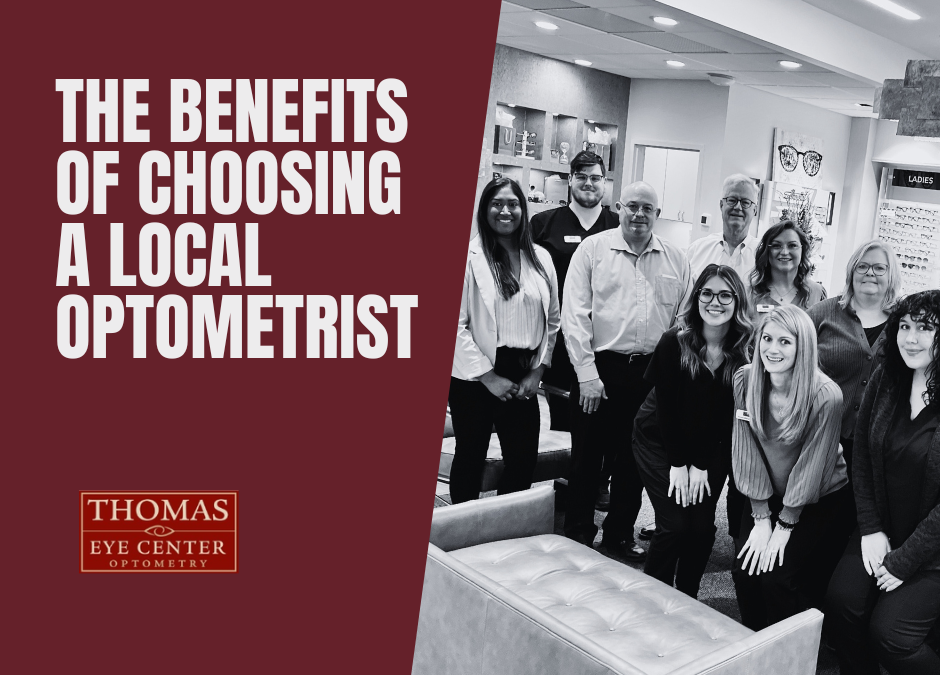When it comes to safeguarding your vision and ensuring your eyes are healthy, selecting the right optometrist is pivotal. An optometrist is not just someone who prescribes glasses or contact lenses; they are a vital part of your healthcare team, dedicated to providing comprehensive care that preserves your sight throughout your life. With numerous clinics and professionals to choose from, finding a local optometrist who aligns with your health needs, lifestyle, and preferences can be daunting. This article will guide you through the essential factors to consider when choosing a local optometrist for your eye health and vision care needs, ensuring you make an informed decision for one of your most precious senses – your sight.
1) Experience and Expertise
Local optometrists with long established practice in the community likely possess a wealth of experience and expertise. It’s essential to note that the quality of care and services can vary among individual practitioners, regardless of whether they work in a retail chain or a local practice. However, optometrists in private practice with extensive experience may have developed a deeper understanding of various eye conditions and treatments, potentially leading to more accurate diagnoses and better outcomes for patients.
2) Personalized Care
Local, private practice optometrists often prioritize building long-term relationships and trust with their patients by providing a more personalized and attentive service. This can include taking the time to understand your medical history, lifestyle factors, and vision goals to provide the most suitable solutions. This personal touch can make a significant difference in the quality of care and customer experience.
3) Access to Advanced Technology
While retail chains may also have access to advanced technology, local optometrists who have been in practice for decades may have invested in specialized equipment and technologies over the years. This can enhance the accuracy of eye exams, diagnostics, and the crafting of lenses.
4) Crafting Lenses
When it comes to crafting lenses, both local optometrists and retail chains typically work with reputable laboratories to produce prescription lenses. The key difference may lie in the level of customization and attention to detail. Experienced optometrists may have established relationships with specific lens manufacturers or labs, allowing for more tailored solutions based on individual needs.
5) Emergency Care
Retail optometrists, such as those found in large chains or commercial establishments, typically do not offer 24-hour emergency care. However, most local private practice optometrists offer urgent care services after their operating hours, where they can address certain eye emergencies or issues that require immediate attention, such as eye infections or sudden vision changes.
6) Community Connection
Local optometrists are often deeply rooted in the communities they serve. They may have strong ties to local healthcare networks, referral systems, and community resources. This can be beneficial if you require specialized care or referrals to other healthcare providers.
7) Trust and Satisfaction
Choosing a local optometrist over a retail chain can lead to a more tailored, high-quality eye care experience, with a broad selection of products, exceptional customer service, expert knowledge, and a personal touch that fosters trust and satisfaction.
Thomas Eye Center was established in 1951 in downtown Athens by Dr. Gerald Thomas. He was committed to providing quality service for Athens and the surrounding community, and now Dr. Stuart Thomas continues that mission of his father. In 1971, the practice moved to Baxter Street. Thomas Eye Center has always been a vanguard of cutting-edge technology to provide the best care for our patients.
As your eye care specialists, Dr. Stuart Thomas, and Dr. Kaj Vetha care about your well-being and understand the health of your eyes are an important part of your overall health care and lifestyle.

